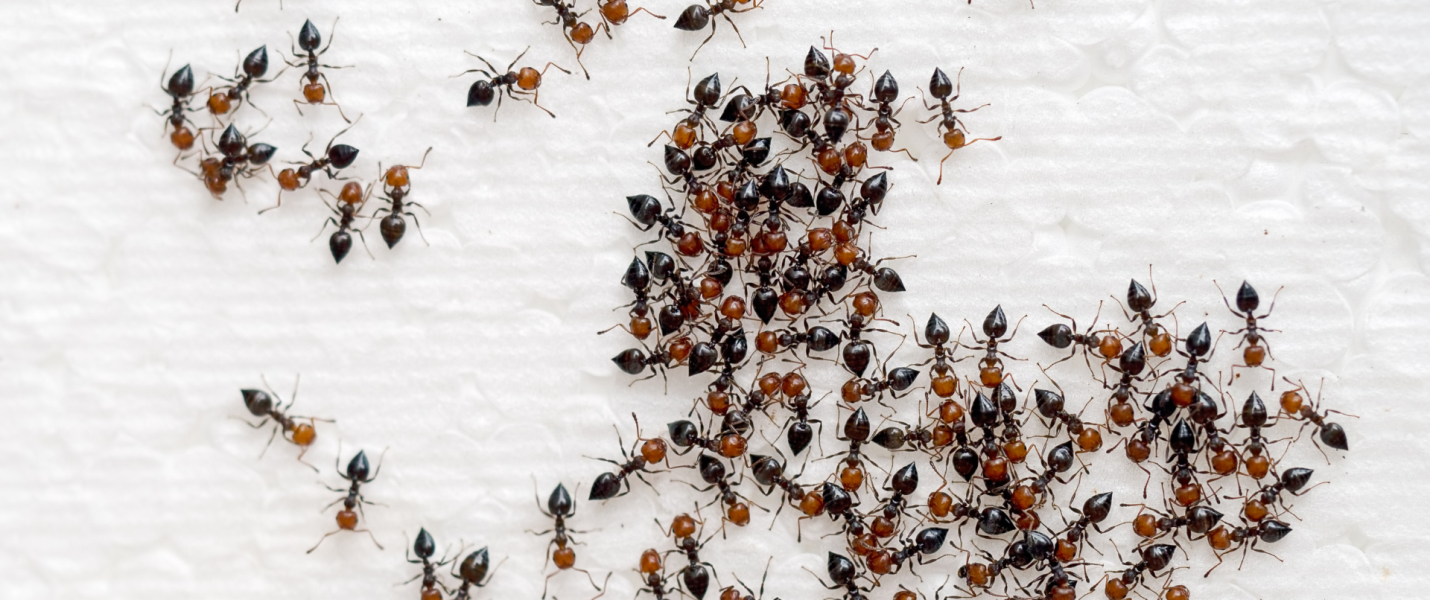Ants are some of the most persistent household pests, and if you’ve ever dealt with an infestation, you know how tricky it can be to keep them away for good. You clean up every crumb, seal up entry points, and still—there they are again. Why do they keep coming back?
Here are 7 surprising reasons ants might be making repeated appearances in your home—and what you can do about it.
1. Your Cleaning Products Are Attracting Them
It might sound counterintuitive, but some cleaning products can actually attract ants instead of repelling them. Many all-purpose cleaners and air fresheners contain sugary or citrus scents that ants are drawn to. Even “natural” or eco-friendly products may include essential oils or ingredients that mimic food sources.
Try switching to unscented or vinegar-based cleaners and wiping surfaces with a diluted vinegar solution to deter ants instead of luring them in.
2. Pet Food Bowls Are an Easy Target
Even if your kitchen is spotless, your pet’s food bowl may be a buffet line for ants. Dry kibble, in particular, has a long shelf life and strong odor that can attract scout ants quickly. Once they find it, the rest of the colony won’t be far behind.
Make a habit of picking up pet food bowls after mealtime and cleaning the area underneath. Consider placing bowls in shallow trays filled with water to create a natural barrier ants can’t cross.
3. Water Leaks Are Like Welcome Signs
Ants aren’t just looking for food—they’re also searching for water. Leaky pipes under the sink, condensation from AC units, or even damp basements can provide the moisture ants need to survive. Carpenter ants, in particular, are drawn to moist wood, which can lead to even bigger structural issues.
Check regularly for hidden leaks and address any damp areas in your home. Running a dehumidifier in musty spaces can also help reduce ant activity.
4. You’re Killing the Wrong Ants
It’s easy to assume that spraying visible ants will solve the problem, but this approach can often backfire. When ants feel threatened, they can actually split their colony and create new nests—a process known as budding. Instead of solving your problem, you could be multiplying it.
Baits are typically more effective because ants bring them back to the nest, eliminating the colony from within. However, identifying the correct type of ant is key to using the right bait and treatment method.
5. Outdoor Landscaping Is Inviting Them In
Your home’s landscaping can be an open invitation to ants without you realizing it. Overgrown bushes, tree branches that touch your home, mulch beds, and firewood piles near your foundation are all perfect ant highways and nesting sites.
Keep vegetation trimmed back, store wood away from the home, and use gravel instead of mulch near your foundation. Also, inspect your yard for ant hills or trails leading toward your home and treat those areas directly.
6. Cracks and Gaps Are Easy Entry Points
Ants can squeeze through the tiniest cracks—sometimes less than 1 millimeter wide. Even if you think your home is sealed up, ants may still find their way in through baseboards, electrical outlets, window frames, and foundation gaps.
Conduct a thorough inspection of your home, especially in areas where plumbing or electrical lines enter. Use caulk or weather-stripping to seal off common entry points and make it harder for ants to get inside.
7. You Haven’t Addressed the Nest
This is the most important—and most overlooked—reason ants keep coming back: you haven’t eliminated the colony itself. Killing ants you see is only addressing the symptom, not the source. Unless the nest is destroyed, ants will continue to forage and explore, leading them right back into your home.
Locating and treating the nest can be difficult without experience. That’s why many homeowners turn to professional ant control services that use targeted strategies to identify the species, locate the colony, and eliminate the problem at its root.
Conclusion: It’s Not Just About Cleanliness
While keeping your home clean is essential in preventing ants, it’s far from the only factor at play. Moisture, access points, outdoor conditions, and even your cleaning methods can all contribute to recurring infestations.
If ants keep coming back despite your best efforts, it might be time to dig a little deeper—and consider calling in the experts. By understanding the real reasons ants return, you can take more effective steps to kick them out for good.












